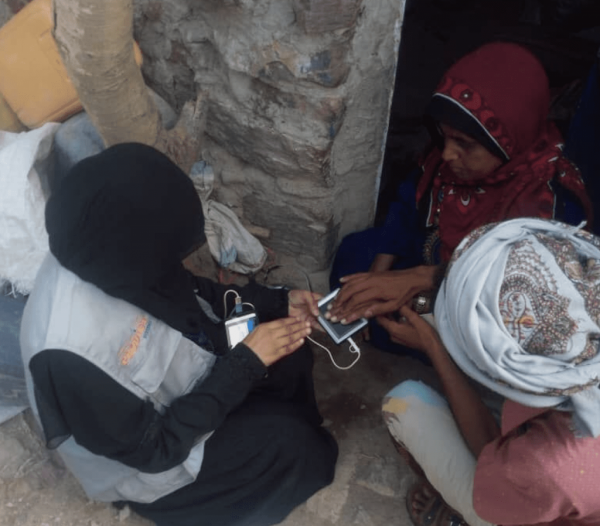
Integrated Biometrics has published a case study detailing the use of the company’s Five-O ten-print biometric scanner to support food aid delivery in Yemen through local partner Prodigy Systems.
The UN has estimated that 24 million people, 75 percent of Yemen’s population, requires food or other humanitarian aid as the company goes through a protracted and bloody civil war. The World Food Programme’s delivery of aid in Yemen has been fraught, with food aid misdirected and the leadership of one side in the conflict objecting to biometric distribution controls on data ownership grounds. The biometric system was reported to not yet be fully launched in February, though aid delivery continues.
To collect aid each household selects a head or designated person, who enrolls in the database, which enables their identity to be verified to confirm eligibility for aid, Integrated Biometrics explains in the 6-page case study. While Prodigy Systems is based in the country’s capital Sana’a, the task of biometric identity verification is made challenging by the large remote population separated by rough terrain, with little or no connection to digital infrastructure. Records are compiled and deduplicated in a database developed by Prodigy to prevent fraud, and aid recipients identify themselves at collection points with a single fingerprint. The dry, dusty conditions and bright sunlight prevalent in Yemen have not presented problems for the Five-O scanners, the company says, and aid workers are not required to constantly clean the sensor surface.
“As a Yemeni company, this project is extremely important to us. We are honored to be part of an endeavor that will save the lives of so many of our fellow citizens,” Prodigy Systems CEO Adnan Al-Harazi states. “Our team will enroll more than a million Yemenis in as many as 75,000 different locations across great distances in areas with little or no reliable network infrastructure. IB’s Five-0 ten-print scanner gives us the mobility and reliability we required to fulfill this important mission.”
Al-Harazi notes in the case study that the Five-O’s mobility, lightweight design of 190 grams, and draw of required power from aid worker’s mobile phones enables them to serve areas without reliable network infrastructure without carrying heavy or bulky batteries.
“For years, the world has watched as the people of Yemen have endured challenge after challenge – political instability, warfare, and famine,” said Integrated Biometrics EVP David Gerulski. “As a company, it’s in our DNA to see our products used to improve quality of life. We are grateful for the opportunity to participate in this humanitarian project that will save the lives of so many Yemenis citizens.”
Integrated Biometrics launched presentation attack detection (PAD) technology just last week that it says is the strongest spoof prevention available for FBI-certified fingerprint scanners.
biometrics | fingerprint identification | fingerprint scanners | Identification for Development (ID4D) | Integrated Biometrics | United Nations